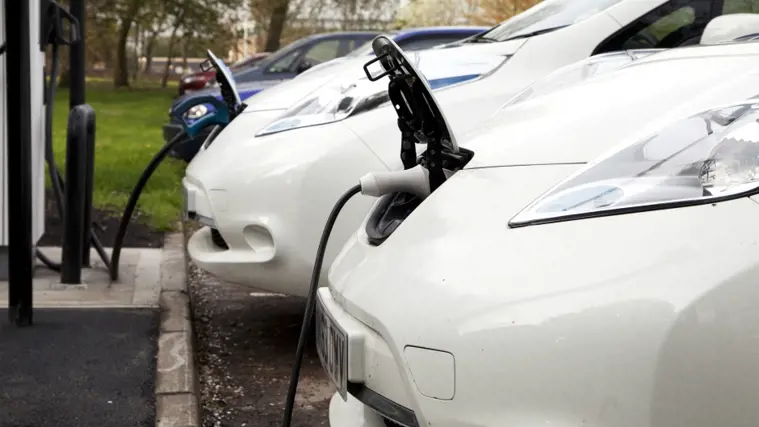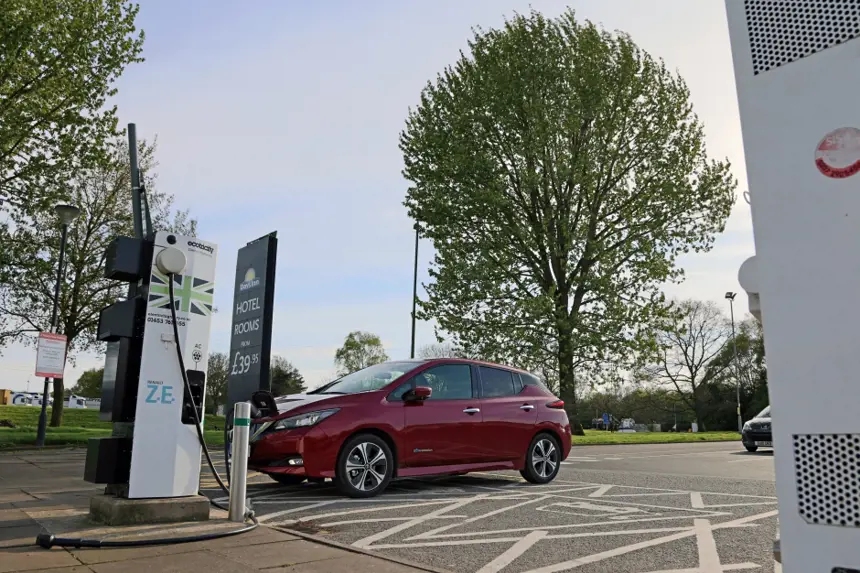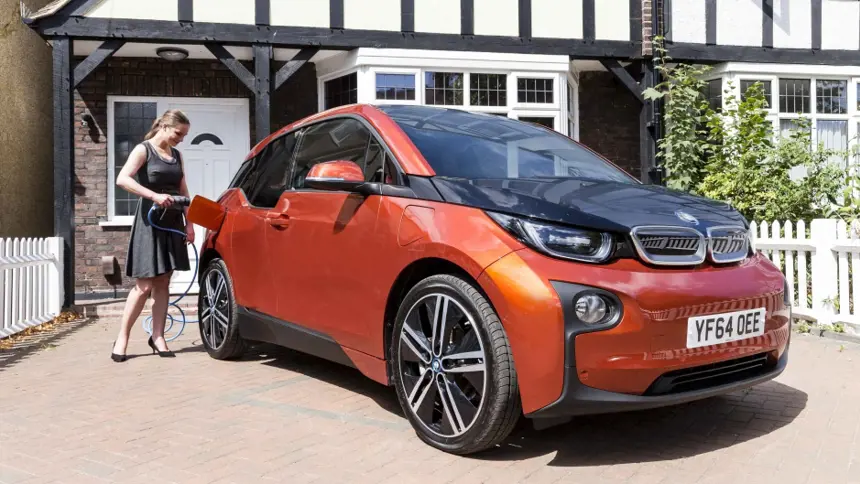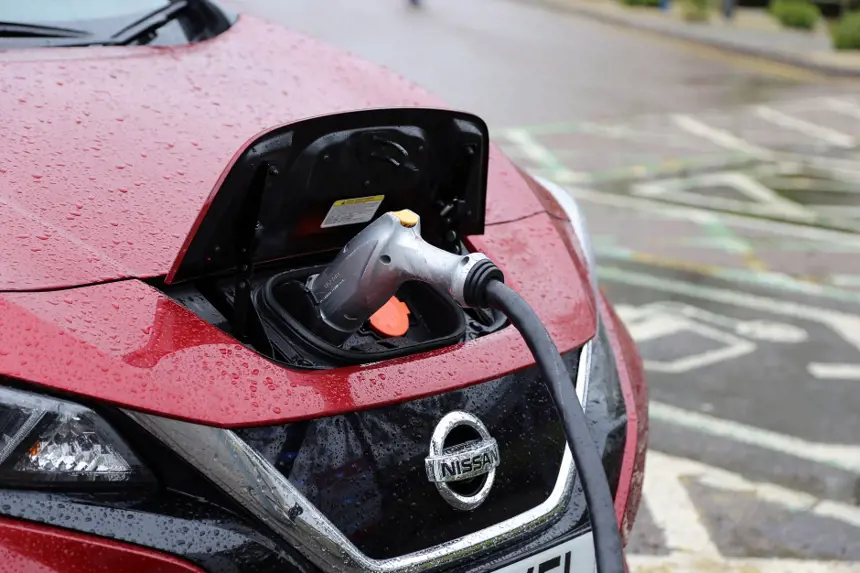How much does it cost to charge an electric car?
Slow chargers, fast chargers, and rapid chargers; read on for our guide to charging an electric car

If you’re in the market for an electric car, it's worth considering how you're going to charge it. There are various ways you can go about it. There might be an electric car charger at your work, in which case you could be covered for much of your driving. But if you aren't that lucky, and there are also the weekends to consider, you'll probably want to think about charging at home.
If you have off-street parking at home, the obvious solution is to plug the car in to your mains power overnight and take advantage of cheaper Economy 7 electricity. Some energy companies have also started to offer a cheaper overnight rate with their smart meters. This can sometimes cost as little as a third of the daily rate, and is a perfect opportunity to time other energy-heavy appliances like washing machines and tumble dryers.
However, the difficulty comes if an overnight charge simply isn't enough for your usage. In which case, you'll need to consider other alternatives. Fortunately, there are plenty of ways you can charge an electric car, and the amount of charging stations is growing steadily. You may be able to charge at work, while other common places for electric car charging include supermarkets, motorway services and public car parks.
Read on for more details on electric car charging, including how long it takes, how much it costs, and how easy it is to charge your electric car at home. And don't forget to head to our BuyaCar search page to take a look at our selection of excellent electric cars waiting to be delivered to your door.
How long does it take to charge an electric car?

Range anxiety (the fear of running out of battery charge away from home) is one of the biggest worries about electric cars for potential drivers, but a close second is how long it takes to charge, with some motorists worrying about spending half their life waiting for the car to be fully topped up.
And the answer is that it really depends on what kind of charger you’re using and its rating. But be prepared - all electric cars take substantially longer to charge than it takes to fill up with petrol or diesel.
- Granny chargers (2kW) When electric car drivers charge their car from a three-pin domestic plug, just like a mobile phone, they often refer to it as 'granny' charging; it's the slowest method of charging an electric car at around 2.3kW, and can take upwards of 24 hours depending on the size of the car's battery pack.
- Slow chargers (3kW) These typically charge at up to 3.6kW, although they are generally referred to as 3kW units. They are most commonly installed as home chargers and can deliver a full charge in about 8-12 hours, although it can be longer for EVs with the highest capacity batteries.
- Fast chargers (7-22kW) Compared to slow chargers, these operate at twice the speed, thus halving charging times. Full charges take 4-8 hours. Typically these cost upwards of £1,000. Though they can be bought for home use, they are typically found in public places. It's important to look at the manufacturer's notes on whether a car can accept the full 20kW, though; some may be limited to just 7kW or 11kW.
- Rapid chargers (50-350kW) These chargers can top up an electric car to around 80% battery from empty within 30 minutes. You'll find them at large motorway service stations, but not all electric cars accept rapid charging. Due to the amount of power required, these chargers can't be installed at home either. It's worth noting that most cars can only accept speeds of up to 100kW at the moment, and even those that can accept higher speeds tone down the power as the battery fills up.
Charging an electric car at home

Charging your electric car at home is the cheapest and easiest option. The good news is that it’s very easy to do - provided you have somewhere to park - as it’s pretty much the same as plugging in an appliance like a kettle or toaster.
Generally, if you’re charging from home (whether that be on your drive or on the street) you’ll need to use your own cable. Simply plug one end into the car, and the other into the power source, and you’re done. Most electric cars have a separate storage area in the boot to keep the cable, too.
You can charge most electric cars using a three-pin plug, but it’s very slow, and will typically take a whole day from empty to full. This may be fine for charging your car overnight and driving short journeys, but it will grow tiresome having to wait that long all the time.
Be aware that if you can't park within a cable's length of a plug, many electric cars will prevent you from charging the car through an extension lead for safety reasons, so you may need to find another way to charge. Besides that, it's recommended not to use an extension lead when charging an electric car anyway.
If you do have off-street parking, it’s worthwhile investing in a dedicated home-charging unit. These typically sit on your driveway, are waterproof, and are wired to your fuse box. They also turn off automatically when your car is fully-charged.
Many manufacturers will supply a wall-mounted slow charger when you buy a new electric car, or if not, there may be Government subsidies in place to cut the cost. Without subsidies, the most common 3kW chargers typically cost between £350 and £500.
You can also buy fast chargers for your home. They are generally twice as fast as slow chargers, and will take 4-8 hours to fully charge a car. There’s a price to pay though - as these typically cost around £500 to £1,000.
How to charge at electric car charging points

Electric car charging points are spread out around the country. You can find them at motorway service stations, supermarkets, public car parks, work places, and some residential streets in places like London and Birmingham.
These require a little bit more thought in terms of connecting to them. Not only do you need to plug into them, but you need to pay for it, too.
Untethered connections, like Pod Point's charging points, require you to supply your own cable, which is no problem if you know what you need. You also need to be signed up to Pod Point's services. Essentially, you pay for your usage via an app, and also lock, and unlock your charging point via the same app.
It’s intuitive and easy to use, especially for people who regularly use apps. Pod Point is best known for its partership with Tesco, providing free untethered charging points at 7kW and 22kW. The company also runs some paid 50kW rapid chargers.
Tethered connections are more common with rapid chargers. Ecotricity, which provides chargers at a lot of motorway service stations, uses a similar app-based platform: once you’ve paid, you have access. Ecotricity does provide its own cables though; this is known as a tethered connection.
BP Pulse, formerly known as ChargeMaster, is another company that is becoming more popular. Electrifying BP’s petrol station forecourts is the name of the game. The company charges a monthly rate, and then users charge their cars either for free or for a low cost, depending on location. Other companies include GeniePoint, InstaVolt and Osprey.
However, charging points might be coming closer to your home soon enough if you live in certain places. The London boroughs of Richmond, Hounslow, and Westminster have all set up charging points that are adapted from lamp posts. The systems used on these are retrofitted to lamposts and are currently being trialled in attempt to improve air quality in the capital. If trials like this prove successful, you can expect more to be rolled out in other places.
Example electric car charging times
| Volkswagen ID.3 58kWh | Nissan Leaf 62kWh | Hyundai Ioniq 38kWh | |
| Driving range | 264 miles | 239 miles | 193 miles |
| Slow charger | 21+ hours | 23+ hours | 14+ hours |
| Fast charger (7kW) | 9 hours 30 minutes | 11 hours 30 minutes (max. 6.6kW) | 6 hours |
| Fast charger (22kW) | 6 hours 15 minutes (max. 11kW) | 11 hours 30 minutes (max. 6.6kW) | 6 hours (max. 7kW) |
| Rapid charger to 80% capacity | 35 minutes (5-80%) (max. 100kW) | 1 hour 30 minutes (20-80%) (max. 50kW) | 1 hour (max. 50kW) |
How much does it cost to charge an electric car?
Fuel costs for electric cars are typically much less than petrol powered vehicles, simply because electricity is cheaper than petrol. However, it’s not that simple. You may need to factor in the cost of buying and installing a dedicated home charger, for example. And rapid chargers are normally much more expensive to use than slower chargers.
However, there will be a time when you need to charge on the go, and this gets more expensive. The fastest charging points at motorway service stations may well get you to 80% charge in around 30 minutes, but they charge a premium. Service stations at peak times might cost you many times the price it would cost to charge at home. But Ecotricity, for instance, will halve this cost if you use them as an energy provider at home.
When comparing an electric BMW i3 with a petrol BMW 318i, the average cost of fuel for the i3 runs at 3.7p per mile, whereas the petrol-powered 318i comes to around 14.2p per mile. Electric cars are also free to tax, while petrol powered ones aren’t. However, insurance on electric cars is generally higher than petrol-powered ones.
In short, the total cost of running an electric car and a petrol powered one are quite similar when depreciation, insurance, and servicing are taken into account. In total, the BMW i3 comes to 67p per mile, whereas a petrol-powered BMW 318i costs 74p per mile. Bear in mind, too, that the 3 Series is also a larger car and has more options available in terms of different fuels, four-wheel-drive, and an estate version.
Sign up for public charging
Public charging points are run by a variety of companies, most of which charge for the use of their electricity in the form of a monthly subscription or on a pay-per-use basis. Either way you will need to sign up with the relevant provider to gain access to their charging points, which you then unlock either by swiping a membership card or using a dedicated app.
Currently, there is no single way of paying for public charging, so unless you plan to visit the same public charging points exclusively, it is worth signing up with two or three providers to ensure you’re covered as and when you need to top up.
If you live in London, for example, and have no off-street parking, you’ll need a subscription with Source London, which has 7kW chargers (both Type 1 and Type 2), as that’s the cheapest way to charge (without a subscription, the cost of a minute’s electricity is almost double).
The BP Pulse network has lots of chargers across the UK which can be accessed using a smartphone app; or you can pay £7.85 a month to join the BP Pulse+ scheme, with around 80% of its chargers then free to use.
One network that doesn’t require membership or an app is InstaVolt, which accepts payment using a contactless card. This is probably the future, but until all the providers agree to accept payments this way, InstaVolt is almost alone. Some rapid PodPoint chargers have started to accept contactless card payments, too.
